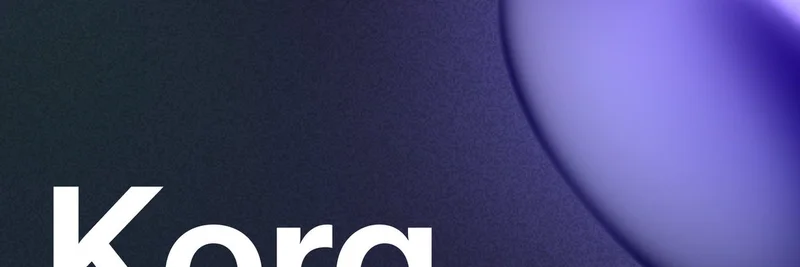The Solana developer community just dropped a game-changer with their latest announcement on X (formerly Twitter). In a recent thread, the @solana_devs account introduced Kora, a gasless relayer designed to make transactions on the Solana blockchain smoother and more accessible. If you're into meme tokens, this could be huge—imagine trading or interacting with your favorite memes without needing to hold SOL for fees.
What is Kora and Why Does It Matter?
Kora is essentially a reference implementation for a Solana relayer. In simple terms, a relayer acts as a middleman that handles the nitty-gritty of transaction fees on your behalf. Traditionally, every action on Solana requires SOL, the network's native token, to cover gas fees—the costs associated with processing transactions. But with Kora, that's no longer a barrier.
This tool allows users to pay fees using any token they prefer, like USDC, BONK, or even a project's native meme token. Behind the scenes, Kora converts those payments and covers the SOL costs itself. This is known as fee abstraction, a fancy way of saying it hides the complexity of fees from the end user, making the experience feel "gasless."
For meme token enthusiasts and developers, this means broader adoption. New users won't be turned off by the need to acquire SOL just to get started. Instead, they can jump right in, paying with whatever token they're already holding. It's a step toward making Solana's high-speed, low-cost network even more user-friendly, especially in the volatile world of memes where quick trades are key.
Key Features from the Kora GitHub Repo
Diving into the official GitHub repository, Kora packs some solid features:
- Seamless Integration: It offers a JSON-RPC API and a TypeScript SDK, making it easy for devs to plug into their apps.
- Security First: Built-in validation, rate limiting, and monitoring ensure it's production-ready without compromising safety.
- Flexible Payments: Collect fees in stablecoins or custom tokens, giving projects more control over revenue.
- Easy Deployment: Run it on platforms like Railway or Docker, or set it up locally with Rust and Solana CLI.
Getting started is straightforward. Install via Cargo, configure your signer (like a Solana private key or integrations with Turnkey/Privy), and you're off. The repo includes detailed docs for quick starts and operator guides.
How Kora Boosts the Meme Token Scene
Meme tokens thrive on hype, community, and accessibility. By removing the SOL hurdle, Kora lowers the entry barrier for casual traders and newcomers. Picture this: You're excited about a new dog-themed meme coin, but you don't have SOL handy. With Kora integrated into a DEX or wallet, you can swap or stake using the meme token itself for fees—no extra steps.
This innovation aligns perfectly with Solana's ecosystem, known for hosting popular meme tokens like BONK and WIF. It could lead to more creative projects, where devs build apps that let users pay in their token, fostering loyalty and utility. Plus, for blockchain practitioners, it's a tool to experiment with, file issues, and contribute feedback as encouraged in the tweet.
The Solana Foundation maintains Kora under an MIT license, emphasizing open-source collaboration. If you're a dev, head over to the repo, try it out, and help "break it" to make it better—just like the tweet suggests.
Wrapping Up
Kora isn't just a technical upgrade; it's a UX revolution that could supercharge meme token activity on Solana. As the blockchain space evolves, tools like this make crypto more approachable, driving mass adoption. Keep an eye on updates, and if you're building on Solana, integrate Kora to give your users that seamless edge.
Stay tuned to Meme Insider for more on how innovations like this shape the meme token landscape. Got thoughts? Share them in the comments or check out the original thread for community feedback.



